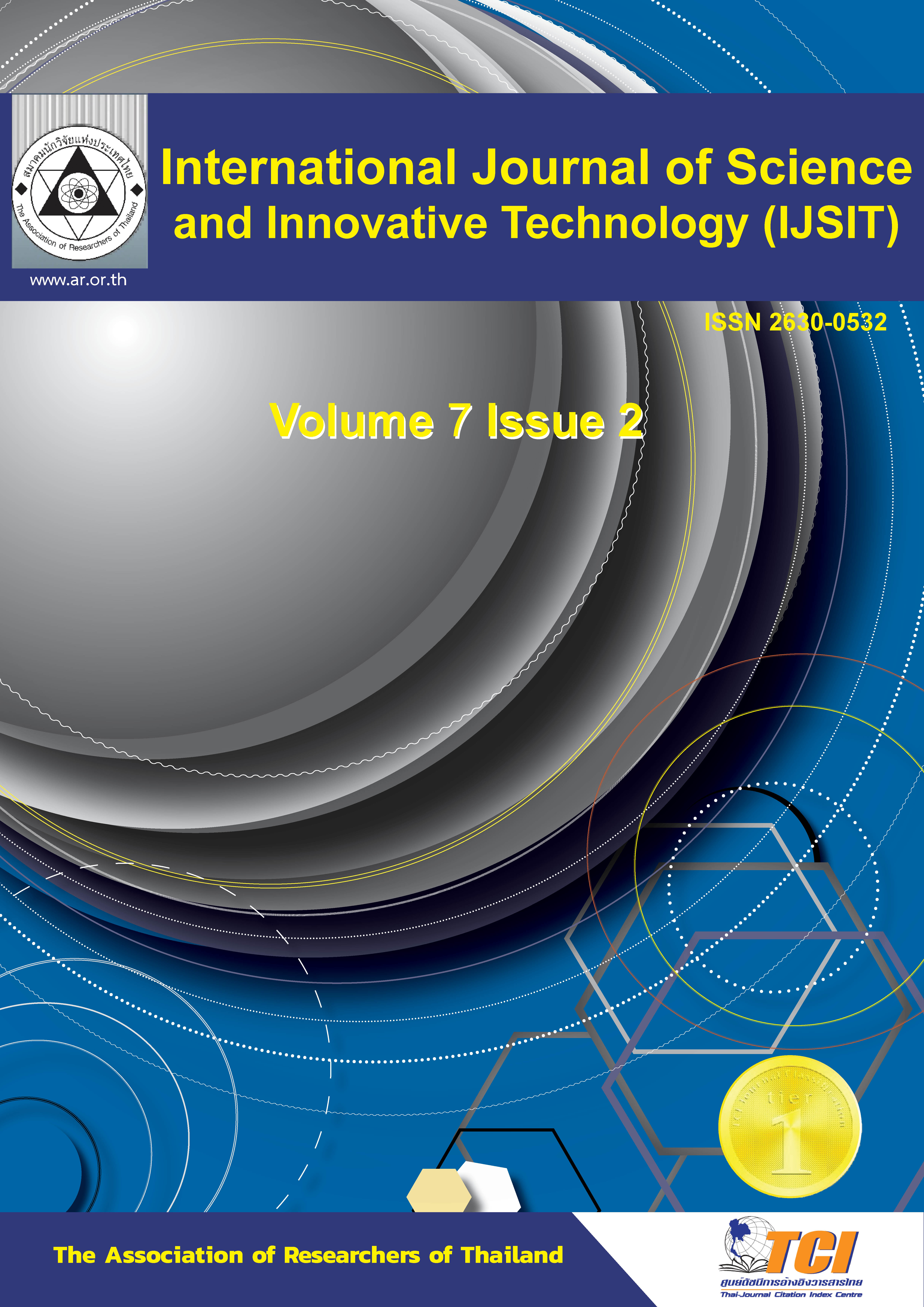Innovative Educational System of Comprehensive Vocational Skills by the Integration Curriculum
Main Article Content
Abstract
Research and develop the quality of comprehensive vocational skills teaching and learning for non-formal and volunteer teachers through the GEO-Social integration curriculum. The objectives are to: 1. Assess the need for developing the quality of vocational skills teaching and learning in the GEO-Social integration curriculum 2. To improve the quality of vocational skills teaching. 3. To evaluate the use model for developing the quality of teaching and learning of vocational skills, targeting 20 teachers and 44 youth. The research tools include the teaching and learning development model, and the GEO-Social integration curriculum consists of learning management, data analysis, and suitability checks.
The results found that 1) the results of the needs assessment and 2) the improving the quality of vocational skills teaching through the GEO-Social integration curriculum has a high level - of quality. The result of finding the efficiency value is equal to 82.40/92.39 3) The experimental results of the development model found that youth have knowledge of practical skills, and the performance is at a high level. 4) The effectiveness of the GEO-Social integration curriculum found the quality of the teaching and learning development model consisting of learning management is suitable and consistent in implementation, which is at the highest level. In terms of learning, the results show that learners have knowledge and learning skills at a high level.
Article Details

This work is licensed under a Creative Commons Attribution-NonCommercial-NoDerivatives 4.0 International License.
References
Ministry of Education. Education policy for underprivileged children.
Office of Educational Policy and Planning Office of the Secretariat of the
Education Council. Bangkok: Ministry of Education, 2005. (in Thai)
Chaipugdee, Duanpenporn. Learning management science for a society of lifelong
learning. Khon Kaen: Khon Kaen University Printing House, 2022. (in Thai)
Chaipugdee, Duanpenporn. “Development of innovative curriculum for teaching and learning
productivity Creatively based on local herbal learning resources.” Academic Journal of
Curriculum and Teaching at Sakon Nakhon Rajabhat University 13, no. 36, (2022):1-9. (in Thai)
Chaipugdee, Duanpenporn. “The process of inheriting and continuing the wisdom of folk medicine led to the health care of people in Ban Sai Ngam Village, Moo. 3 and Moo. 12, Na Siew Subdistrict, Mueang District, Chaiyaphum Province.” Academic Journal of
Curriculum and Teaching at Sakon Nakhon Rajabhat University 5, no. 12, (2023):61. (in Thai)
Wichianpanya, Pornthida. Knowledge Management: Basics and Applications (Knowledge Management). Bangkok: Thammakamon Publishing. ,2004. (in Thai)
Nilphan, Marium “Innovative Development of Basic Education
Interacting with the community through the use of local museums and learning resources
Promoting creative learning.” Humanities, Social Sciences and Arts, 8 no.1, (2015):52-53.
(in Thai)
Pathumcharoenwattana, Weerathep and Worarat, Charungkiattikul, Suwithida. “Important mechanisms in Working to help children Outside the education system in Chaiyaphum Province.” Accessed October,14 2021. https://www.matichon.co.th/article/news_2749453.
(in Thai)
Jittaradab, Sompong. “6 Models of Creativity: The driving force of informal children.
Central, Eastern, and Western Network Partners.” Accessed October,14 2021. https://mgronline.com/entertainment/detail/9640000095346. (in Thai)
Sangsri, Sumalee. Non-formal education management for lifelong education according to the Education Act 1999. Bangkok: Center for the Promotion of Informal Education, Department of Non-Formal Education. Bangkok: Ministry of Education, 2012. (in Thai)
Kemmis, and McTaggart. The Action Research Planner. 1990: 53-90)

